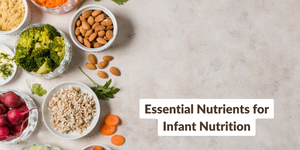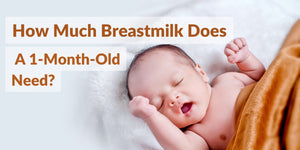Chocolate is perhaps the most beloved food in the world. This sweet, creamy, and delicious snack is difficult to resist for children. You might consider the disadvantages of chocolate as a parent, but if you have the right information, eating chocolate can also be beneficial.
This article will delve into the different kinds of chocolate, their pros and cons, and the best ways of eating chocolate so that you can make an informed decision on your kids' nutrition.
Types of Chocolates
Chocolate is produced from cocoa beans obtained from the plant Theobroma cacao. There are three main types of chocolate, each with different flavours and compositions:- Dark chocolate, with an intense aroma of cocoa and a bitter aftertaste, has the most health benefits. It contains cocoa (around 35-80% of the total weight) and cocoa butter.
- Milk chocolate contains at least 20–25% cocoa solids and other ingredients such as cocoa butter, sugar, lecithin, and milk powder. It has a sweet taste with a faintly bitter hint of cocoa.
- White chocolate has a sweet, pleasant taste and is made of cocoa butter, sugar, and milk.
Advantages of Eating Chocolate
The benefits of eating chocolate are plentiful. Here are some:- Cocoa beans are rich in minerals such as copper, iron, magnesium, phosphorus, potassium, and zinc.
- Chocolate helps boost moods and energy levels.
- Regular consumption of chocolate increases brain function.
- The flavonols present in chocolate protect against inflammation and allergies, aid in healthy blood flow, and reduce the risk of blood clots.
- Regular consumption of dark chocolate controls blood sugar and cholesterol levels and lowers blood pressure.
Disadvantages of Eating Chocolate
Here are a few disadvantages of eating chocolate.
- Most commercially available chocolates contain high amounts of sugar and calories. Increased consumption of chocolate contributes to weight gain and obesity.
- The sugar present in chocolate can increase the risk of tooth decay and diabetes.
- With high consumption, the caffeine in chocolate can cause frequent urination, increased thirst, insomnia, diarrhoea, sleep deprivation, and a tendency towards hyperactivity as the body’s tiredness is disregarded.
- Chocolate itself or its other ingredients like milk, nuts, and dry fruits can cause allergies.
Best way to eat chocolate
Before your child grabs a chocolate bar or other chocolate treat, remember that not all chocolates are beneficial for health. Choosing the right kind and quantity of chocolate is important because it can directly impact your child’s health. Parents should restrict the intake of chocolates that contain ingredients such as caramel, marshmallow, and cream, which add extra fat and calories.
Dark chocolate
Dark chocolates are the best choice due to their health benefits. They have the highest cocoa content and provide minerals and trace vitamins.
Parents should opt for plain dark chocolate or dark chocolate with nuts or fresh or dried fruit for their children.
Remember that dark chocolate is high in calories and can cause weight gain if consumed in excess. A rule of thumb is to offer no more than 1/3 of a 100-gram bar at a time.
Milk chocolate
Milk chocolate contains potassium and some vitamins but should be eaten in limited amounts because it’s high in sugar and fat.
White chocolate
White chocolates have a high amount of fat and sugar and not much nutritional value, so they should be avoided or consumed in minimal amounts.
Important points to remember
- The higher the cocoa content, the more beneficial the chocolate.
- Always check the ingredients listed on the wrapper of the chocolate treat for sugar, fat, and calorie content.
- Choose plain dark chocolate or dark chocolates with fillings such as nuts, or dried or fresh fruit.
- Chocolates are high in calories—so offer them in moderate amounts a few times a week.
- Do not give chocolates to babies younger than one year of age.
- It is always best to discuss your child’s dietary preferences with your paediatrician.
For more articles and information, check out the BabyG App: one-stop destination for all your queries and concerns.
Reference:
- Cleveland Clinic. Dark, milk or white – which chocolate is best for your heart? [2021].
- AAP. Added sugar in kids’ diets: How much is too much? [2021].
- University of Michigan. Caffeine Q & A [2021].
- Colorado Integrated Food Safety Center of Excellence. Chocolate [2021].
- Clemson Cooperative Extension. Introducing solid foods to infants [2021].






Feeding kids chocolate is a good idea and initiative. Kids need chocolate during their study time cause eating chocolate during learning can increase the power of memorization.
You can try personalized dark and white chocolates from our store: https://www.thewalletstore.in/collections/customized-chocolates
Great web site you have here..The clearness in your post is simply nice. Wonderful information and quality article.
More than happy to recommend and get people to binge on the best chocolates.
Your review is vicariously enjoyable! I have never met dark chocolate that I wouldn’t eat, so I enjoyed your subjective standards.
All great choices and I would love to see a list of some smaller bean to bar companies.